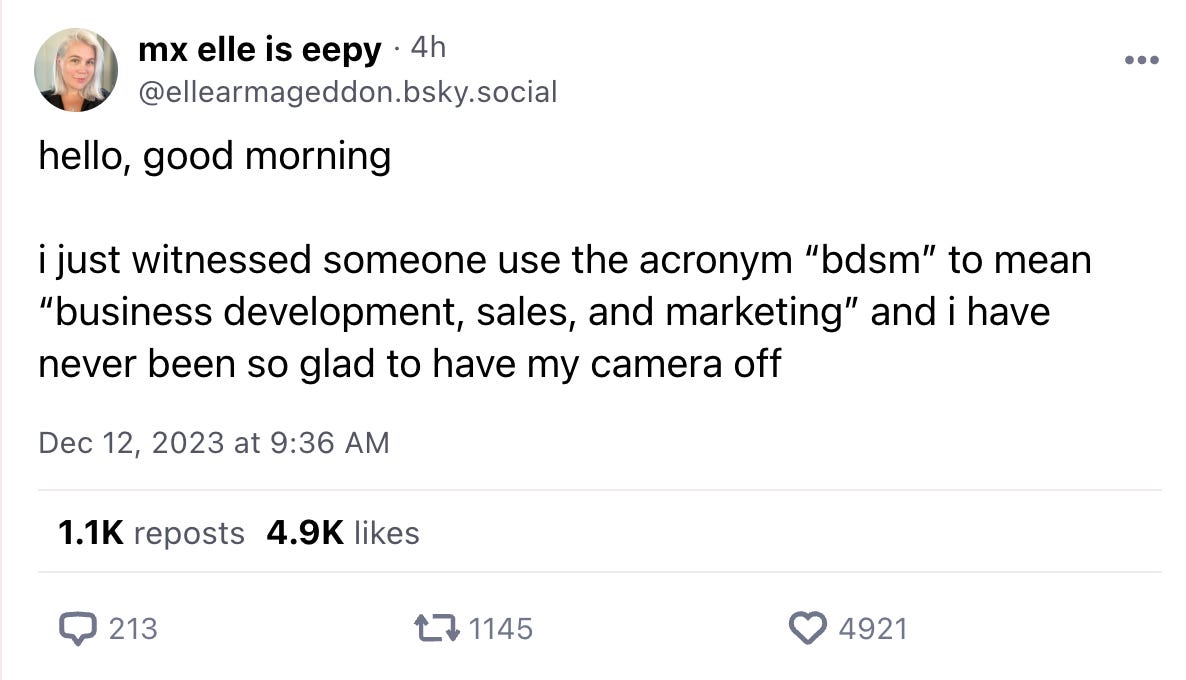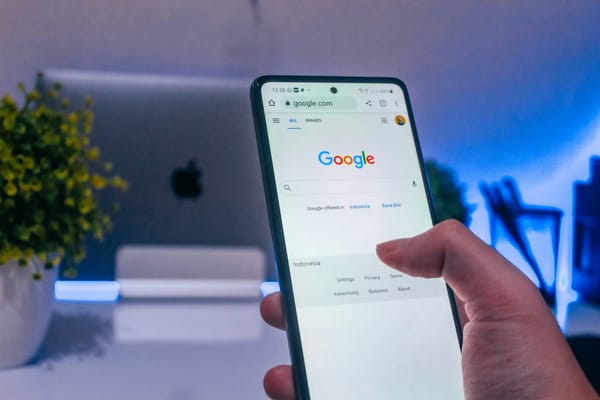An Epic win jolts Google
The company's app store monopoly has been ruled illegal, and the ramifications will extend well beyond Fortnite

Today let’s talk about a high-stakes ruling against Google in a closely watched antitrust case, and consider what it might mean both for the companies involved and the larger digital economy.
Late Monday, the jury deliberating in Epic Games’ lawsuit against Google ruled in favor of the Fortnite developer. It found that Google harmed Epic by creating a monopoly in in-app billing and app distribution within the Android ecosystem, illegally tying the app store and its billing system together. A series of revenue-sharing deals with developers and device manufacturers were also found to harm competition.
Epic’s lawsuit was filed in 2020. Around the same time, the company sued Apple on similar grounds, claiming Apple’s app store monopoly and ban on third-party billing systems was anticompetitive and illegal. But Epic (mostly) lost that case, which was decided by a judge.
As this new trial unfolded, Sean Hollister wrote at The Verge, “Epic v. Google turned out to be a very different case.”
He continues:
It hinged on secret revenue sharing deals between Google, smartphone makers, and big game developers, ones that Google execs internally believed were designed to keep rival app stores down. It showed that Google was running scared of Epic specifically. And it was all decided by a jury, unlike the Apple ruling.
Last week Hollister wrote a recap of the trial that, in addition to exploring the many facets of each company’s arguments, serves as a highly entertaining account of Google’s app-store related chicanery over the years: sweetheart deals to favored developers like Spotify and Netflix; successful efforts to prevent third-party app stores from launching; and the lies it told about its app store not being designed as a profit center. (The Play Store’s profit margin in 2021 was estimated during the trial to be 71 percent.)
And Epic managed to prove all that despite operating in an environment where — oops! — much of the relevant evidence was destroyed by Google, thanks to executives’ use of a default setting in Google Chat that deleted their messages automatically after 24 hours. (The judge in the case, James Donato, called this “the most serious and disturbing evidence I have ever seen in my decade on the bench with respect to a party intentionally suppressing relevant evidence,” not to mention “a frontal assault on the fair administration of justice.” He has promised to investigate.)
At Stratechery, Ben Thompson hones in on the finding that Google illegally tied its billing system to the Play Store, and suggests that this is why it mattered the case was decided by a jury rather than a judge. The jury may have been less likely to consider that Google had a justifiable business reason for tying the two together, he writes — namely, that it’s the best and most efficient way for Google to collect its compensation for building Android.
Perhaps, then, this is an argument that Google will use when it appeals — which the company plans to do, a spokesperson told me.
“The trial made clear that we compete fiercely with Apple and its App Store, as well as app stores on Android devices and gaming consoles,” said Wilson White, vice president of government affairs and public policy, in a statement shared with Platformer. “We will continue to defend the Android business model and remain deeply committed to our users, partners, and the broader Android ecosystem.”
So what does this mean for the digital economy?
Nothing, yet. In January, the parties will submit post-trial briefs and begin discussing potential remedies. Google’s will offer some idea of the grounds on which the company plans to appeal. One place you can expect the company to focus, according to a source familiar with the case: Epic’s exclusion of Apple as a competition. In antitrust cases, market definition is almost everything, and if Google can persuade an appeals court that it competes against Apple in app distribution, it might be able to get this verdict overturned.
Assume it stands, though — what then?
Epic is seeking more freedom for developers to incorporate their own internal app stores and billing systems into their apps while still making them available on the Play Store, while reducing Google’s cut of its revenues as much as possible. Google, on the other hand, will be seeking … not that.
Even though Epic did not sue for monetary damages, such an arrangement would be hugely lucrative for the company. At one point in the trial, Epic CEO Tim Sweeney — who may have been exaggerating slightly for effect — suggested that the company might make “billions” more in revenue as a result of not having to give a percentage to Google. (As you might expect, Epic hailed the ruling in a blog post.)
For Google, the consequences depend on which remedies the judge decides upon. Hollister reports that in the aftermath of Epic’s move to introduce its own billing system for Fortnite — the thing that got it kicked out of the Play Store and sparked the lawsuit — Google worried that up to 100 percent of top game developers were likely to follow suit. That would surely cut deep into the $12 billion in operating profit that Epic’s expert estimated the company earns from the Play Store.
At the same time, the markets shrugged off the ruling almost entirely: Google’s stock price dropped less than a percentage point after it was announced. Perhaps that’s because investors assume that Epic will lose on appeal, or that whatever remedy is offered ultimately gives Google a pathway to continue capturing some significant percentage of the revenues now flowing through its app store. It’s worth remembering that pushing customers toward alternative app stores and billing systems is inconvenient, and the path of least resistance for developers will always be to use Google’s own systems, even if it costs them some significant portion of revenues.
One good outcome could be for Google’s revenue share to come down enough that it enables more small- and medium-sized developers to thrive and grow their businesses. Google’s take rate has never really held back Epic in any meaningful way, but surely there are some businesses you just can’t build in a world where Google takes 30 cents of every dollar.
And that’s just as true on iOS as it is on Android. Apple may have won its case in the United States, but third-party app stores and billing systems will become legal requirements in Europe next year. They’re already a requirement in South Korea. And more such regulations are undoubtedly coming.
By now it’s clear that whatever the economic future of digital apps, Google and Apple will have to be dragged there, kicking and screaming. But it doesn’t have to be that way.
“Google and Apple both treat developers as adversaries — they try to attack our revenue streams and prevent us from competing with their products,” Sweeney told Hollister in an interview today. “They’ve built these massive self-preferencing schemes all around excluding developers and disadvantaging third-party developers. I think this is very shortsighted. I think any tech company — Apple, Google included — would be much better off in the long term if they viewed developers as awesome partners and did everything they could to support them and empower them and not get in their way financially.”
Talk about this edition with us in Discord: This link will get you in for the next week.
Governing
- A federal judge allowed a class action suit against Elon Musk to proceed, ruling that his false tweets, recklessness and a poop emoji comment could constitute manipulation of stock. Sorry but the idea that Twitter stockholders are suing on the grounds that they could have gotten a better price for the company seems ludicrous.(Elura Nanos / Law & Crime)
- Lina Khan’s leadership of the FTC was supposed to result in accountability from big businesses, but some are concerned about her strategic approach after a few high-profile losses. (Ankush Khardori / New York)
- The US government is becoming more reliant on AI, but a top accountability watchdog says the lack of policies on non-military agency AI purchases could pose national security risks. (Brian Fung and Sean Lyngaas / CNN)
- The US is expected to make about a dozen semiconductor chips funding awards next year, including some multi-billion dollar deals, US Commerce Secretary Gina Raimondo says. (David Shepardson / Reuters)
- How Discord’s ineffective moderation tools and limited retention policies contributed to ongoing extremist activity on the platform, contributing to the leaking of classified information there earlier this year. (Samuel Oakford, Chris Dehghanpoor, James O’Donnell and Shane Harris / Washington Post)
- Judges in the UK now have official permission to use ChatGPT to write legal rulings. Gulp! (Thomas Germain / Gizmodo)
- French president Emmanuel Macron says the EU’s landmark AI Act could hamper AI development and set European tech companies behind rivals in the US, UK, and China. (Javier Espinoza and Leila Abboud / Financial Times)
- Apple will reportedly allow rivals use its tap-and-go payment systems, in an apparent effort to settle European antitrust charges. (Foo Yun Chee / Reuters)
- A Chinese influencer talks about the government punished him and that continues to threaten his livelihood after he used social media last year to amplify activists protesting against zero-Covid policies. (Li Yuan / The New York Times)
Industry
- X is set to bring in just $2.5 billion in advertising revenue in 2023 — a roughly 50 percent drop from the year before Elon Musk took over. (Kurt Wagner / Bloomberg)
- Twitter was the most powerful force in news for more than 10 years, notes this piece that looks at its impact on the news ecosystem. So far, Threads is no replacement — and maybe that’s a good thing: “Threads is to Twitter as methadone is to heroin,” says Ezra Klein. “You don’t use it for the same purpose.” (Nilay Patel / The Verge)
- Bonus treat: An archive of iconic tweets. Read them and learn. (The Verge)
- Twitter’s company culture before Elon Musk was idealistic. Was it naive to think the company could be a force for good forever? (Zoë Schiffer / The Verge)
- The very things that made Twitter a powerful force for social change made it a tool for rampant harassment. (Sarah Jeong / The Verge)
- Sam Altman is back on stage and already defending his approach to AI development as OpenAI’s CEO, saying developers need to push some boundaries in order to realize the technology’s potential. (Saritha Rai / Bloomberg)
- Meta is upgrading the AI assistant on its Ray-Ban Meta smart glasses and testing multimodal capabilities that allow it answer questions based on the user’s environment. (Karissa Bell / Engadget)
- YouTube removed a snippet of code that disclosed which channels and creators shared in ad and subscription revenue. (Paresh Dave / WIRED)
- Google Maps released new updates that include letting users change key location settings, storing Timeline locally, and letting them delete all location data. (Allison Johnson / The Verge)
- Apple is beta testing Stolen Device Protection to protect against theft by restricting certain settings when a user is away from a location their iPhone is familiar with. Good! (Joanna Stern and Nicole Nguyen / The Wall Street Journal)
- Snapchat released a handful of new AI-powered features for Snapchat+ subscribers, including one that allows users to create and send AI-generated images. (Aisha Malik / TechCrunch)
- WhatsApp now lets users pin messages, including emojis and stickers, in direct messages and group chats. (Ivan Mehta / TechCrunch)
- Startup Essential AI raised $56.5 million from investors including from Google, AMD, and Nvidia. The company, which was co-founded by an inventor of the transformer, plans to use AI for corporate tasks like data analysis. (Sarah McBride / Bloomberg)
- BeReal is rolling out two new features: Behind the Scenes, which is similar to Live Photos on iOS, and RealGroups, which allows users to share BeReals with a smaller group of friends. Hard to imagine a smaller group of friends than the number of people still using BeReal. (Amanda Silberling / TechCrunch)
- The New York Times hired Quartz co-founder Zach Seward as the editorial director of AI initiatives. He’ll focus on potential uses of generative AI in the newsroom. (Alexandra Bruell / The Wall Street Journal)
Those good posts
For more good posts every day, follow Casey’s Instagram stories.

(Link)

(Link)

(Link)
Talk to us
Send us tips, comments, questions, and alternative billing systems: casey@platformer.news and zoe@platformer.news.





